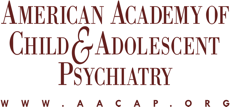Institute 4 (ticket)
Psychotherapy: The Science and Art of Relationships
In psychotherapy practice, child and adolescent psychiatrists work both with the therapistsí relationships to patients and their families and the important relationships in the patientsí lives. Indeed, psychotherapy is the most relationship intense aspect of child and adolescent psychiatric practice. It builds on the power of relationships to change psychological functioning. Advances in the science of relationships can inform clinical practice across the spectrum of psychotherapies. This Institute updates participants on research advances, in ethology and attachment that shape our understanding of the role of healthy relationships and relational stress or dysfunction on physiology, epigenetics, and developmental psychopathology. With this background, participants examine and compare the relational focus and distinctive features in clinical interventions of maternal/child mutual regulation, Interpersonal Therapy (IPT), Supportive Therapy, Cognitive Behavioral Therapy (CBT), and Mentalizing-Based Therapy (MBT).
Psychotherapy: The Science and Art of Relationships
Thursday, October 24, 2013: 8:00 AM-5:00 PM
Chairs:
8:00 AM
Introduction
8:15 AM
4.1
When Love Goes Awry: Attachment Relationships and Their Implications for Mental Health in Childhood and Adolescence
9:10 AM
4.2
Dysregulation to Regulation: How Science Informs Therapy for Traumatized Mothers and Their Toddlers
10:00 AM
Break
10:15 AM
4.3
The Therapeutic Alliance and the State of the Art of Mentalizing-Based Therapy With Adolescents and Families
11:10 AM
Panel Discussion
11:45 AM
Lunch (on your own)
1:00 PM
4.4
Behavioral, Biological, and Epigenetic Consequences of Differences in Early Social Experience in Primates
1:55 PM
4.5
Family-Based Interpersonal Psychotherapy for Depressed Preadolescents: Treatment Development and Results from a Preliminary Randomized Controlled Trial
2:50 PM
4.6
The Impact of Relational Factors on Psychotherapies Targeting Gastrointestinal Disorders: Cognitive Behavioral Therapy versus Supportive Therapy
3:45 PM
Panel Discussion
Sponsored by the AACAP Psychotherapy Committee
See more of: Institute
